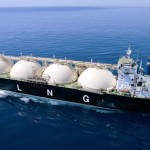There is no excerpt because this is a protected post.
Archives
DPRK (North Korea) Chronology for 2001
DPRK (NORTH KOREA) CHRONOLOGY FOR 2001 Compiled by Lee Sigal Northeast Asia Cooperative Security Project Contact: 1/5/01: Kim Dae-jung invw acknowledges the transition may be difficult and says he plans to visit Washington soon to win Bush’s support for reconciliation with North. FM Lee Joung-binn acknowledged that “some are voicing concern over the possibility […]
Richard Tanter – publications on nuclear power
Briefing Book: Indonesian nuclear power proposals, Australia-Indonesia Nuclear Dynamics Nautilus Insti…
POTENTIAL INSIDER THREAT AGAINST JAPANESE NUCLEAR FACILITIES: CHALLENGE AND PROGRESS SINCE THE FUKUSHIMA NUCLEAR DISASTER

MASAKATSU OTA NOVEMBER 16, 2017 I. INTRODUCTION In this essay, Masakatsu Ota examines measures taken by Japan’s nuclear sector since the Fukushima catastrophe to upgrade nuclear security, in particular, Specialized Safety Facilities, and Personnel Reliability System. Ota argues that two further steps are needed to overcome evident deficiencies that still exist, viz, strengthening newly […]
IMPACT OF UNSC RESOLUTION 2375 ON DPRK OIL IMPORTS

David von Hippel and Peter Hayes September 12, 2017 I. INTRODUCTION In this essay, David von Hippel and Peter Hayes review estimates of the fraction of North Korean refined product imports and total oil imports that will be affected by UNSC Resolution 2375. They find that (assuming the sanctions contained in the Resolution function as […]
RISKS OF DENSELY PACKED SPENT FUEL POOLS

by Allison Macfarlane May 19, 2017 I. INTRODUCTION This essay by Allison Macfarlane argues that “the back end of the fuel cycle, especially at reactors, has not received the attention to safety and management it needs. Management of spent fuel after discharge from the reactor requires careful thought and safety analysis. Surprisingly, regulators in some […]
The Japan SIGINT project
This page lists publications by Desmond Ball and Richard Tanter on Japanese signals intelligence, as well as m…
The Japan SIGINT Project
This page lists the publications and resources associated with the research on Japan’s signals intellige…
Nautilus Peace and Security Network – 30 July 2015
DETERRENCE: Crews to start unprecedented 3-carrier swap this summer DPRK: US envoy on North Korea Sydney Seiler says Iran deal proves flexibility GOVERNANCE AND CIVIL SOCIETY: Students protest in Taiwan over ‘China-centric’ education CLIMATE CHANGE AND AND SECURITY: Beijing is finally getting serious about climate change DETERRENCE: Crews to start unprecedented 3-carrier swap this summer, Lance Bacon, Navy Times (12 July […]
Challenges Associated with Natural Gas Exports from the U.S. to Asia: the Oregon Example

In this Policy Forum David von Hippel writes “With an eye on the Asian market, developers have proposed two LNG export terminals for the state of Oregon. Terminal developers and gas producers argue that there are substantial environmental and employment benefits to exporting LNG to Asia. The challenges faced by these proposed projects in receiving the myriad necessary construction and operation permits from federal, state, and local authorities, however, as well as consideration of the arguments going on between Oregon stakeholders at the state and local level, suggest caution is in order for East Asian nations in depending on substantial future LNG exports from the US before these (and other) terminals are actually built.”

